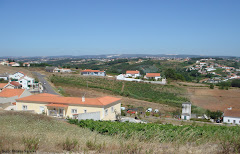 Habitat III, the Third United Nations Conference on Housing and Sustainable Urban Development, will take place in 2016, and UN-Habitat is in the process of asking local authorities and other Habitat Agenda Partners for their assistance in structuring the Habitat III meetings and formulating a New Urban Agenda.
Habitat III, the Third United Nations Conference on Housing and Sustainable Urban Development, will take place in 2016, and UN-Habitat is in the process of asking local authorities and other Habitat Agenda Partners for their assistance in structuring the Habitat III meetings and formulating a New Urban Agenda.... To start the debate, we open the following points for discussion.
- The New Urban Agenda must stress the importance of well-trained planners who are equipped with the necessary knowledge and competencies for the attainment of sustainable urbanization, resilient regions, smart cities, accessible urban spaces and just societies.
- Strengthening the link between practice and research(ers)/academia that deal with the built environment is crucial and should be addressed as a priority.
- The rapidly emerging debate around the 'right to the city' movement should be addressed in the New Urban Agenda. The right to have a place to stay and to be connected through accessible means of transport, and the right for citizens to meet in spaces and places (squares) as collectives are issues of great importance.
- The New Urban Agenda should stress the importance of ‘good governance’ as well as allowing discursive practices in support of transparent decision making
- Urban dynamics beg for approaches which not only focus on a means-end relationship or which are not solely process and consensus driven, but incorporate adaptive attitudes as well as conditional structures which do not just constrain but are also meant to enable.
- The New Urban Agenda should above be a social agenda, stressing issues as well-being, liveability, affordability, access and health, and supports identity building of communities and urban collectives.
- The New Urban Agenda should consider (discontinuous) change being the only constant factor to the urban. This idea affects both institutional and spatial design fundamentally. It also means a break with the idea of linear growth which has proven to be invalid.
Ver mais:
http://www.aesop-planning.eu/news/en_GB/2014/06/19/readabout/discussion-on-new-urban-agenda













Sem comentários:
Enviar um comentário